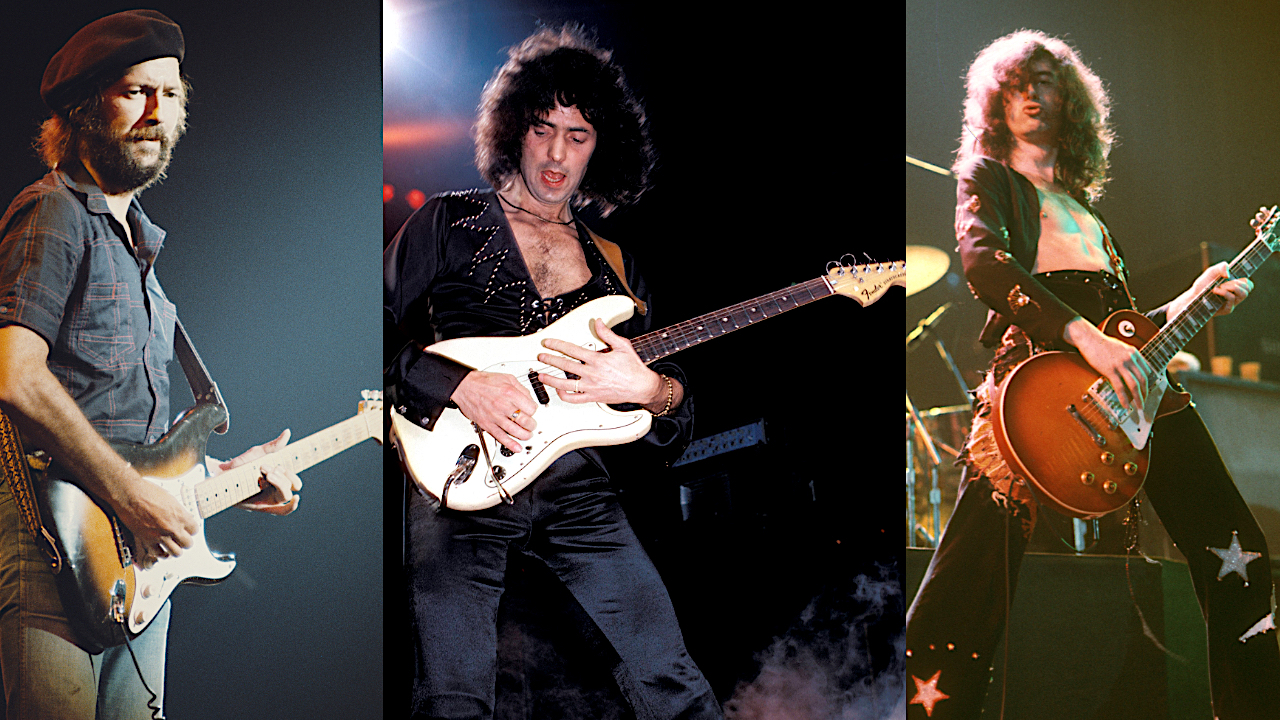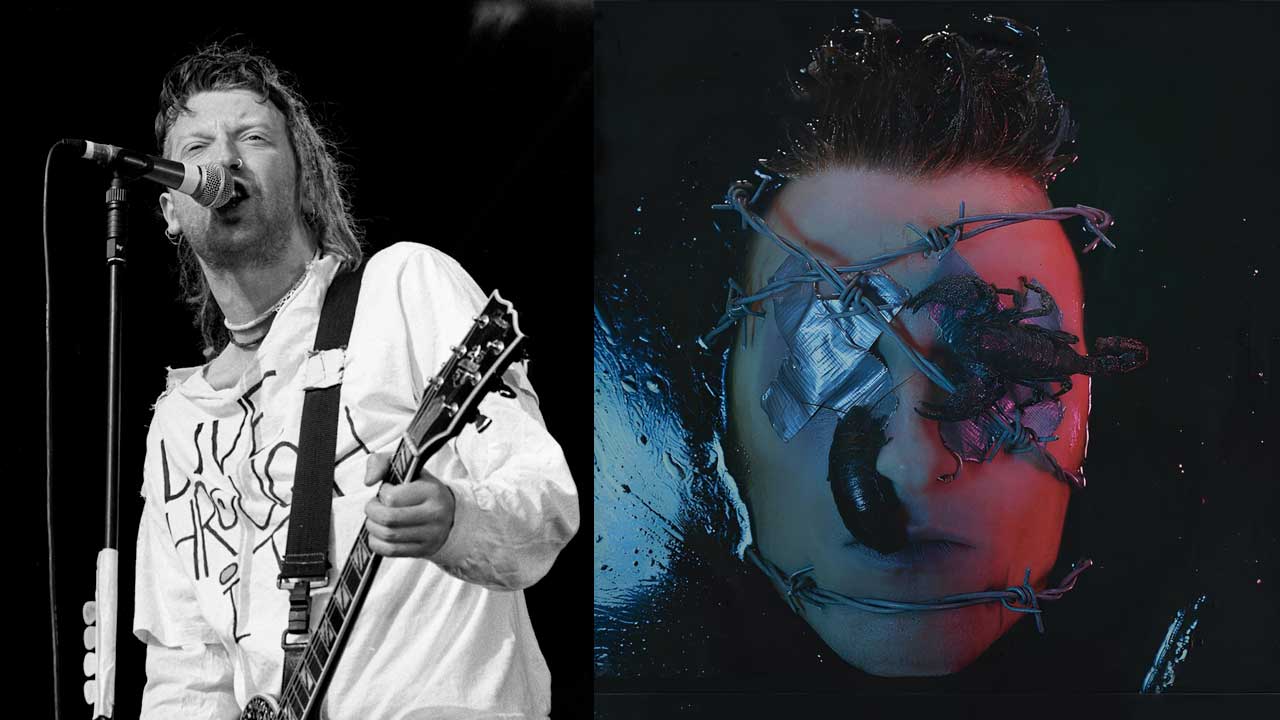"I'm not too struck on Jimmy Page and Eric Clapton, I never saw what was in Clapton at all". In 1975, Deep Purple's Ritchie Blackmore was asked for his thoughts on his peers: he did not hold back
Blackmore on Hendrix, Beck, Page, Clapton, Townshend and more

In March 1975, Deep Purple's Ritchie Blackmore appeared on the cover of International Musician & Recording World magazine after conducting a rare interview with American writer/producer/guitarist Jon Tiven.
Hailing Blackmore as "perhaps the world's finest electric guitar player" in the introduction to his interview, Tiven pointed out that the guitarist "does not take well to interviews", `and quoted Blackmore as saying, "I'm a musician, not a politician, and I don't want to influence the minds of our fans." With that said, Blackmore didn't hold back in the interview which followed, especially when sharing his thoughts on a number of his peers.
Strictly speaking, Tiven didn't ask Blackmore for his thoughts on Jimmy Page or Eric Clapton, but Deep Purple's guitarist brought the pair into the conversation when asked, 'What guitarists do you like?'
"I like Jeff [Beck]," Blackmore replied. "He's my favourite guitarist. There are a lot of guitarists around that get overlooked. When you're a guitarist yourself you tend to get so buried in what you're doing. Mike Bloomfield is really good. Steve Howe's always been a very good guitarist. I'm not too struck on Jimmy Page and Eric Clapton, I never saw what was in Clapton at all. He's a good singer."
Singing the praises of Beck, who he described as "a very natural guitar player", Blackmore added, "Being a guitarist, I obviously know a lot of tricks of the trade, but whenever I watch Beck I think, How the hell is he doing that?"
In the same interview, Blackmore also saluted the talents of Jimi Hendrix.
"Your head should tell your hands where to go, the hands shouldn't do it all by themselves," he told Tiven. "Hendrix's head must have been very good. I'd say, from listening to his music, because he never repeated himself. That means his hands weren't having the say, he was saying, I want to play this."
The writer also sought out Blackmore's opinion on The Who's Pete Townshend, and was informed, "He's part of The Establishment... you can knock The Establishment but there's not much point."
"There were days in '64 when he inspired me," Blackmore added, "because he was the first one ever to use distortion, it was unheard of in those days, and he did a distortion solo in Anyway Anyhow Anywhere. That was really good, I thought The Who were great when they first came out. Townshend is not so much of a guitarist as an all-round guy — writer, all that."
Somewhat ironically, when asked if he rated any American guitarists, Blackmore name-checked Tommy Bolin, who would actually replace him in Deep Purple before 1975 was over.
Sign up below to get the latest from Classic Rock, plus exclusive special offers, direct to your inbox!

A music writer since 1993, formerly Editor of Kerrang! and Planet Rock magazine (RIP), Paul Brannigan is a Contributing Editor to Louder. Having previously written books on Lemmy, Dave Grohl (the Sunday Times best-seller This Is A Call) and Metallica (Birth School Metallica Death, co-authored with Ian Winwood), his Eddie Van Halen biography (Eruption in the UK, Unchained in the US) emerged in 2021. He has written for Rolling Stone, Mojo and Q, hung out with Fugazi at Dischord House, flown on Ozzy Osbourne's private jet, played Angus Young's Gibson SG, and interviewed everyone from Aerosmith and Beastie Boys to Young Gods and ZZ Top. Born in the North of Ireland, Brannigan lives in North London and supports The Arsenal.
